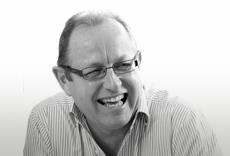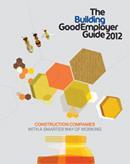Happy workers are more productive than miserable ones, but what generates happiness in the first place? Here’s the secret according to Stephen Gee at John Rowan and Partners, which topped our Good Employer Guide this week

Last month Time magazine announced that of all the countries in the world, Iceland has the happiest workforce. In fact according to their survey, Icelandic workers are twice as happy as those in the US. So what’s their secret? This year John Rowan has introduced a new business approach across the company designed to promote an optimistic and positive view on work and life. This is all based around the Happiness Advantage, a book from Harvard’s Shawn Achor, which details the new scientific information we have on how we can train the brain and how we think.
If success causes happiness, then every one of us who has completed a project, been promoted or accomplished a goal of any kind should be happy. But as we know, this isn’t true
The book is based on the theory that most people behave in a way that they have learnt throughout their lives, whether it was at home, school, work or through society in general. Which is, if you work hard you will be a success and once you’re deemed a success, you will be happy. This way of thinking explains what often drives us on to succeed. We think if I just secure that next project or deal, then I will be happy.
Achor points out that this behaviour is flawed and if success causes happiness, then every one of us in the construction industry who has completed a project, received a promotion or accomplished a goal of any kind should be happy by default. But as we know, this isn’t true and with each achievement we push the goal posts of success out a little further.
The Happiness Advantage turns on its head the old theory of work hard, achieve the next thing and then we will be happy. Over a decade of research in psychology and neuroscience has proven that the relationship between success and happiness works the other way around. Happiness is the precursor to success, as Achor shows: “Waiting to be happy limits our brain’s potential for success, whereas cultivating positive brains makes us more motivated, efficient, resilient, creative and productive which drives performance upward. Happiness and optimism actually fuels performance and achievement - giving us the competitive edge = Happiness advantage.”
So what does this mean in practice?
By being happy we don’t just mean going around the office smiling all day. It’s about having a positive, optimistic approach to what we do and what we might achieve if only we tried. We spend our lives surrounded by bad news and this couldn’t be truer of our industry over the last couple of years.
Simple techniques can be used to retrain ourselves to seek out the positives that do exist and put bad news into perspective. In terms of business planning we found that after some very tough years it was becoming more difficult to raise our sights, be optimistic and set good challenging goals.
After some very tough years it was becoming more difficult to raise our sights, be optimistic and set good challenging goals
Realistic planning had taken hold which tends to result in a downward spiral of achievement. In simple terms, is it better to set a target of 10% on last year and achieve it because it is realistic? Or is it better to explore the possibilities of what you might achieve, if only you tried, setting a higher target of 20% and realising that when you achieve 16% that this is much better than a realistic 10%. This can only be achieved however, when people feel that they won’t be judged for not achieving aspirational targets, and that the expectation on them comes from themselves and not others.
The introduction of the Happiness Advantage has already brought a great deal of success to the business. We are looking at a year where we will achieve strong growth across the business as a whole. Just as important is the positive atmosphere it has brought to the company, improving the whole feel of what we do and how we achieve it.
I think the Happiness Advantage shows how changes in people’s mindset can have an impact on a business’ success. It also requires no financial investment and in times like these the Happiness Advantage is perhaps more relevant and commercially valuable than it’s ever been. It’s certainly working for us so I can only suggest that other firms give the approach a try; either that or relocate to Iceland.
Stephen Gee is managing partner at John Rowan and Partners
THE GOOD EMPLOYERS GUIDE 2012





























No comments yet